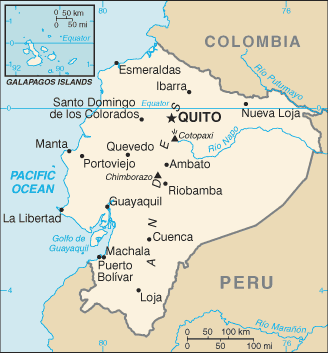Drug policy
Ecuador has a number of drug demand reduction policies and programmes that support the development and implementation of programs in the areas of health promotion, prevention, early intervention, treatment, care, rehabilitation and social reintegration.
These include:
- National plan for the comprehensive prevention and control of the social phenomenon of drugs 2017 – 2021
- “Mi primer deporte” and “Actividades Físicas, Rítmicas y Recreativas,” 2019
- Directives for the formulation and implementation of programs for the comprehensive prevention of the use of alcohol, tobacco and other drugs in the workplace in both the public and private sectors, 2019
- Intervention program for incarcerated persons
- Model for comprehensive intensive outpatient care and treatment for problem use of alcohol and other drugs in primary care facilities of the Ministry of Public Health
- National Model for Hospital and Home Care Education
Treatment and Recovery Services
Ecuador has the following comprehensive and inclusive care, treatment, rehabilitation, recovery and social integration programs and services in the public health care network and social protection:
- Early intervention (brief intervention, counselling)
- Crisis intervention Treatment modalities
- Dual pathology (co-morbidity)
Ecuador’s programs and services take into account the WHO/UNODC “International Standards on Treatment of Drug Use Disorders,” and also uses Guidelines for the Supervision of Mental Health Services for facilities that provide outpatient care and intensive outpatient care in hospital-based residential mental health units.
Ecuador has drug demand reduction policies that include programs in the areas of health promotion, prevention, early intervention, treatment, care, rehabilitation and social reintegration.
The country delivers social integration and recovery support services that are based on the rights of children and adolescents, inclusive, gender, intercultural, ecological context, wellbeing, continuing education.
Prevention Services
Ecuador develops and conducts the following prevention strategies and programs:
School children and university students
Individuals in the workplace
Users of the MIES services
The country does not conduct indicated prevention programs or strategies and does not implement specific programs for the following population groups: street population; the family; gender male/female; LGBTIQ+ population; community; indigenous population; migrants or refugees; or incarcerated individuals.
Ecuador promotes the exchange of research findings, experiences and good practices to improve the effectiveness of prevention programs, taking into consideration the “International Standards on Drug Use Prevention,” developed jointly by the WHO and UNODC.

